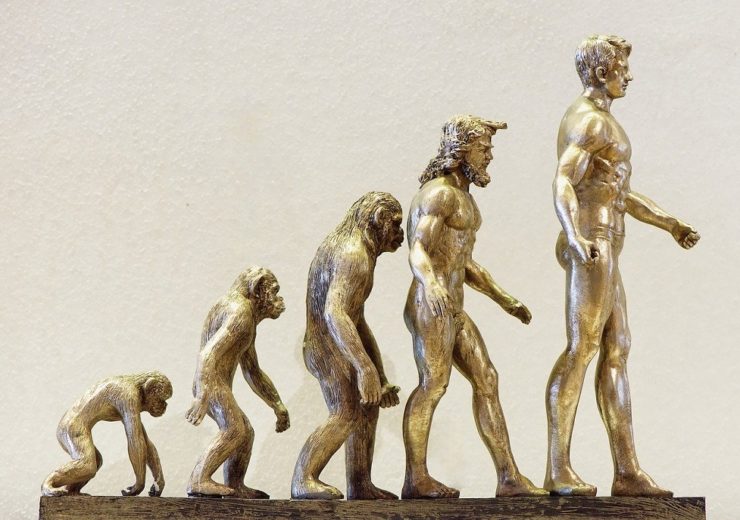DeepMind's AlphaGo programme was a good example of evolutionary AI in action when the technology beat the Go board game's world champion Lee Sedol

Evolutionary artificial intelligence is a concept in which AI trains AI to continuously improve (Credit: Pixabay)
The age of evolutionary AI is upon us and it’s time for leaders to heighten their awareness about the technology. Cognizant’s global head of AI and analytics Bret Greenstein and Matt O’Kane, head of AI and analytics for Europe, discuss.
The evolution of AI continues apace. Deep learning has established its place in the world of technology, but its next iteration is evolutionary AI.
As well as driving Google-owned DeepMind’s AlphaGo programme to victory over Lee Sedol – world champion at the abstract strategy board game Go – this concept is now available for commercial solutions.
What is evolutionary AI?
Put simply, evolutionary AI can help decision-makers find the best strategies and the optimum solutions.
No longer relying on human input, it uses AI to train AI – not just doing what it is told, it can come up with every possible scenario or variation of possibility to solve challenges.

Following his defeat, Sedol announced his retirement, concluding the technology driving his virtual opponent was now of such a standard that he could no longer beat AI.
This is a profound moment – an AI-based system, underpinned by evolutionary AI, has mastered a game that human players have been learning and grasping for decades.
This means technology has reached the point where it can learn new strategies from its experiences rather than being trained by people.
And this capability is now being used in business, which means it will touch all of our lives.
More capabilities provided by evolutionary AI
Most people think of AI as being very good at narrow tasks like recognising images and voice, and that is true with deep learning, but AI is capable of so much more when you use evolutionary techniques.
Ultimately, evolutionary AI can help people find the best strategies to optimise all kinds of decisions in every industry – from insurance underwriting to bank reconciliation, and from supply chain optimisation to employee retention.

Human beings only work with a fraction of the information that matters and can’t explore every possible decision to find the ones that maximise multiple goals.
To cope with our limitations, humans have learned to filter out a lot of data and possibilities when making decisions. As a result, a good strategy may be developed, often very good, but not the best possible one.
Aim for AI-awareness
To ensure they are developing the best possible strategies, all workers, but especially key decision-makers, will need to become “AI-aware”.
Evolutionary AI means there are now AI systems in business which can find better answers to day-to-day decisions than a human can.
The way we currently crawl through data, produce reports and guess root causes – and it is guessing, based on experience – to make decisions will soon seem as outmoded as faxes and adding machines.
How to successfully adopt evolutionary AI
There are three key things leaders must do to be AI-aware:
Embrace data as the source of wisdom and value for their business
Not all data matters, but the information that does matter may not be being harnessed as it should.
Leaders need associates to see data for its potential and must hire staff who can bring in, and understand, new types of information – be that data from images, internet of things, text, social media and voice.
Ask better questions and expect more
Instead of asking for another report or spreadsheet from their team, leaders should ask “why?”.
Why are they following the same processes they always do? And why do they produce these results? More to the point, why is any of this data of any value to them?

Understanding the answers to these questions, and uncovering what a team lacks in terms of data or AI tools, is a vital first step to improving a business.
Leaders will find that, in far too many cases, they are operating on anecdotal experience or data with correlation but not causation.
When the same problems come back every month or quarter, this still has not been resolved.
Only by continuing to question processes and refining the use of data, enhanced by technology, will progress begin to be made.
Reinvent themselves
Nobody at any stage in their life or career should be afraid to learn.
Once a leader understands the principles of how techniques like evolutionary AI work, they will start to see the potential of their business differently.
This new perspective will encourage leaders to hire people with the right skills and change the way their business makes decisions.
The advent of evolutionary AI in business does not spell the end of people’s careers – it is the start of a new chapter.
Unlike Go, which is a single, complex challenge, evolutionary AI does not succeed in a business setting by forcing someone to retire, as businesses are continually filled with new challenges.
However, it is only through embracing AI and thinking in terms of the value of data that the shrewdest leaders will most effectively solve today’s problems and recognise the challenges ahead for their business.
If not, they risk being left behind by the latest technological advances and facing their own Lee Sedol moment a few years down the line, when they realise – too late – that the future is now.


